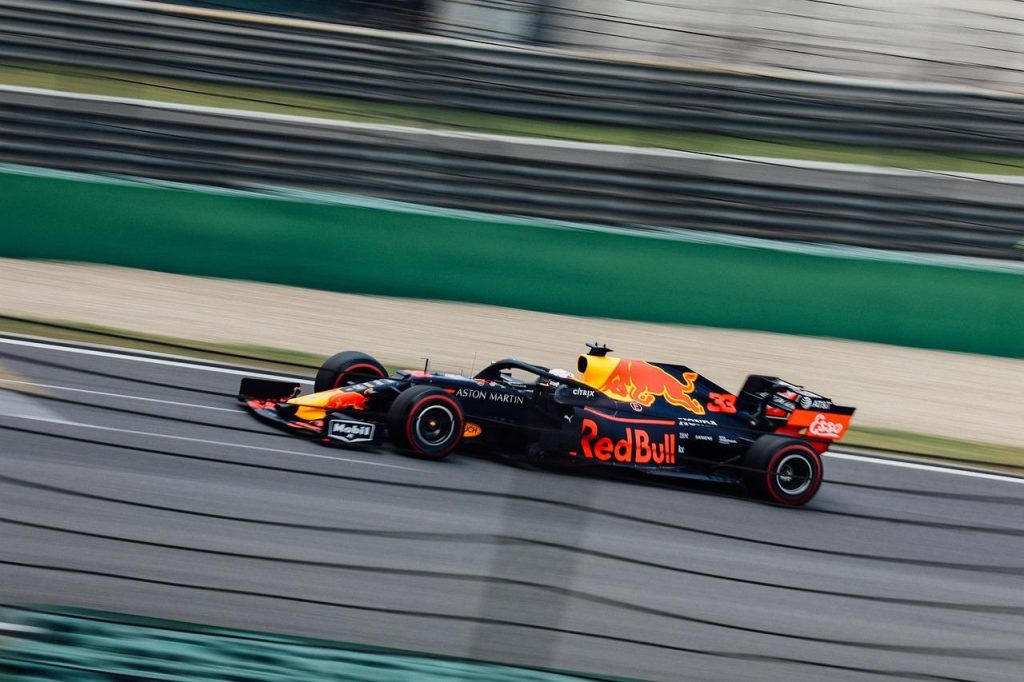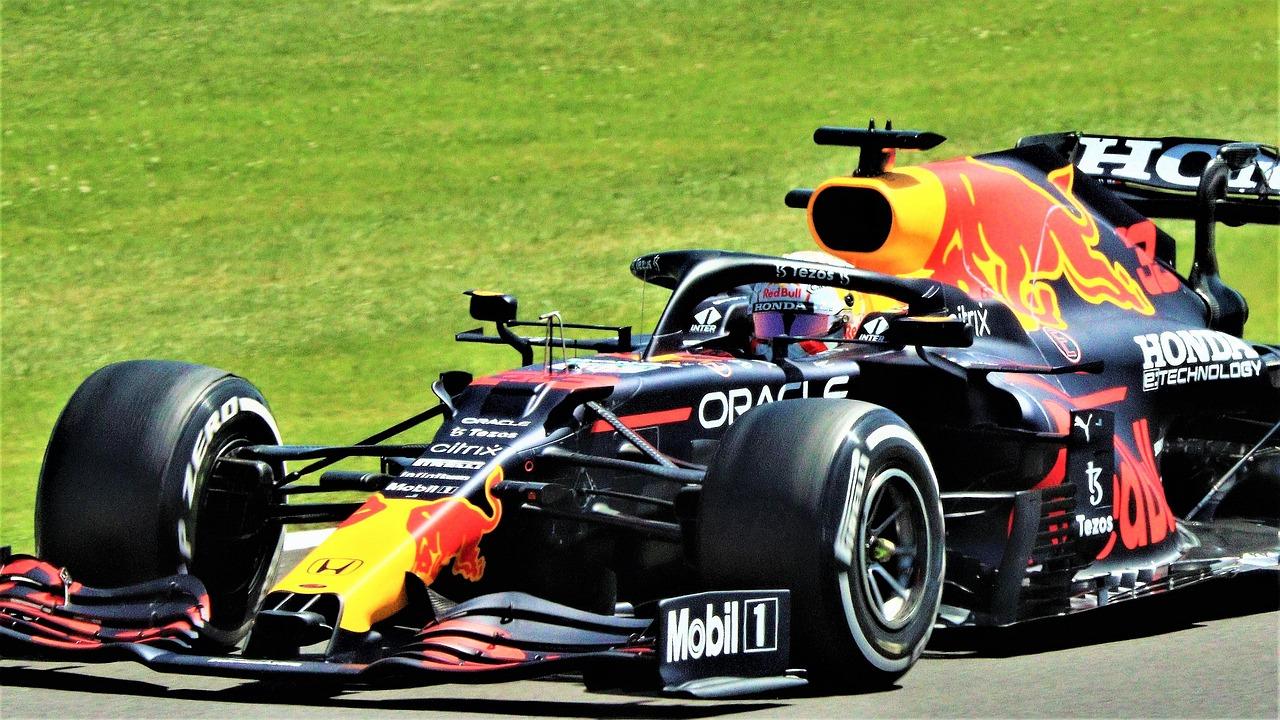In the high-octane world of Formula 1, few narratives spark as much debate as the rising dominance of Max Verstappen and his Red Bull Racing team. While their blistering pace and unyielding pursuit of victory have secured a legion of admirers, an intriguing undercurrent of discontent simmers among a portion of F1’s passionate fanbase. Christian Horner, the astute architect behind Red Bull’s recent ascendancy, has now stepped into the spotlight not just to celebrate triumphs, but to dissect the phenomenon of their unpopularity. In this article, we explore Horner’s insightful theories on why Verstappen-led Red Bull, despite their undeniable success, faces a complex relationship with the sport’s global enthusiasts.
Christian Horner Explores the Roots of Red Bull and Max Verstappen’s Polarizing Presence in F1
Christian Horner has candidly delved into the complex dynamics that fuel the divided opinions surrounding Red Bull Racing, spearheaded by Max Verstappen. According to Horner, the team’s aggressive strategy and Verstappen’s commanding driving style have profoundly reshaped the Formula 1 landscape, but not without stirring controversy. The core of this unpopularity often stems from fans’ perception of dominance bordering on invincibility, which can create a sense of imbalance and predictability within the sport. Horner emphasizes that the polarizing aura isn’t just about winning; it’s tied to how Red Bull’s relentless pursuit of excellence challenges traditional loyalties and long-established fan bases.
Furthermore, Horner suggests several key factors contributing to this divide:
- The rise of youth and audacity: Verstappen’s fearless racing approach disrupts old-school expectations and appeals more to newer, younger fans.
- Media portrayal: A mixture of praise and criticism amplifies the narrative of rivalry, further entrenching fan opinions on either side.
- Team identity and culture: Red Bull’s branding as a rebellious, energetic force contrasts with traditional teams, creating a potent emotional response.
Through this lens, Horner portrays the phenomenon as a multifaceted interplay of sport, media, and culture rather than simple dislike – a testament to the ever-evolving nature of Formula 1 fandom.
Analyzing Fan Sentiment Shifts Toward Red Bull’s Dominance and Verstappen’s Racing Persona
The evolution of fan sentiment surrounding Red Bull’s recent dominance, spearheaded by Max Verstappen’s stellar performances, reveals a complex interplay of admiration and aversion. While Verstappen’s unyielding drive and exceptional skill have cemented his status as a formidable champion, a noticeable segment of the F1 fanbase grapples with an emerging discontent. Many attributing factors include the perception of an overwhelming Red Bull presence diluting competitive diversity, coupled with Verstappen’s unapologetically aggressive racing style which polarizes viewers. This sentiment shift underscores a phenomenon where success breeds both respect and rivalry, fueled by the emotional stakes fans invest in the sport.
Several key elements shape this nuanced fan reaction:
- Dominance Fatigue: Prolonged Red Bull superiority is often seen as diminishing the unpredictability that keeps fans engaged.
- Verstappen’s Persona: His relentless pursuit of victory is admired by some but perceived as overly aggressive or unsportsmanlike by others.
- Media Narratives: Coverage that emphasizes Red Bull’s advantage can amplify feelings of imbalance and polarization within the community.
- Fan Tribalism: Longtime supporters of rival teams experience heightened emotional investment, sometimes translating to vocal criticism.
Together, these factors contribute to a fanbase whose passion manifests not only in cheers but also in critical scrutiny, reflecting the dynamic and deeply human nature of sports fandom.
Strategic Recommendations for Red Bull to Enhance Fan Engagement and Broaden Support
In a fiercely competitive sport where passion fuels every lap, Red Bull must pivot toward fostering a more inclusive and dynamic connection with a broader fanbase. Emphasizing transparency in team dynamics and celebrating the collective achievements, rather than spotlighting a single star, could alleviate perceptions of exclusivity. Engaging fans through interactive digital platforms-such as live Q&A sessions with drivers, behind-the-scenes content, and gamified experiences-will foster a sense of belonging and excitement beyond race day. Moreover, launching grassroots initiatives that bring the team closer to emerging markets and younger audiences can cultivate long-term loyalty, converting casual viewers into fervent supporters.
- Leverage social media storytelling to humanize drivers and team members
- Create fan-driven contests and challenges tied to race weekends
- Invest in community outreach programs, including local motorsport events
- Develop exclusive content tailored for different international demographics
Red Bull’s path to rekindling its fanbase lies not only in on-track victories but in crafting an emotional narrative that resonates universally. Shifting focus toward fan-centric strategies, such as personalized merchandise and loyalty rewards, can transform passive spectators into avid brand advocates. By embracing feedback loops and integrating fan voices into decision-making processes, the team can signal genuine appreciation and build trust. Ultimately, creating a culture that champions both competitive excellence and heartfelt engagement will distinguish Red Bull as not only a dominant force in Formula 1 but also a beloved icon off the circuit.
Balancing Competitive Success with Sportsmanship Image to Cultivate Long-Term Fan Loyalty
In the high-octane world of Formula 1, the pursuit of victory often clashes with the ideals of fair play and respect, presenting a unique challenge for teams like Red Bull. Christian Horner’s insights highlight a crucial balancing act: achieving competitive success without alienating the fanbase. The combination of Max Verstappen’s sheer dominance and Red Bull’s relentless pursuit of championship glory can inadvertently create a perception of exclusivity and detachment among fans who crave not only thrilling races but also a relatable and respectful sporting spirit.
To cultivate enduring loyalty, teams must embrace a multi-faceted approach that elevates their public image alongside their track performance. Key strategies could include:
- Transparent communication: Engaging openly with fans to foster trust and shared enthusiasm.
- Respectful rivalries: Promoting competitive but fair interactions on and off the track to maintain the sport’s integrity.
- Community involvement: Demonstrating commitment to the sport’s wider ecosystem through outreach and fan-focused initiatives.
These elements combined can help transform transient applause into genuine, long-lasting support, ensuring that sporting excellence is matched by a positive and admired sportsmanship image.
As the roar of engines fades and the checkered flag waves, the discourse around Max Verstappen and Red Bull’s polarizing presence in Formula 1 remains as dynamic as a high-speed overtaking maneuver. Christian Horner’s reflections not only shed light on the complexities behind fan sentiment but also underscore the passionate, often divided world of F1 fandom. In a sport where every victory is hard-earned and every rivalry fiercely contested, understanding the nuances behind popularity-and unpopularity-adds a rich layer to the unfolding drama on and off the track. Ultimately, whether revered or debated, Verstappen and Red Bull’s impact on the sport is undeniable, fueling conversations that propel Formula 1 beyond the circuit and into the hearts of its global audience.



